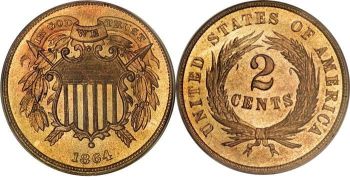 Today Rev. Mark R. Watkinson, troubled by brother killing brother in the Civil War that has now continued for longer than many imagined, writes a letter to Salmon P. Chase.
Today Rev. Mark R. Watkinson, troubled by brother killing brother in the Civil War that has now continued for longer than many imagined, writes a letter to Salmon P. Chase.
Watkinson is pastor of the The First Particular Baptist church of Ridleyville, Pennsylvania (later renamed Prospect Hill Baptist Church). Few outside of Pennsylvania have heard of the Baptist minister. Salmon P. Chase is the Secretary of the United States Treasury, entrusted by the Lincoln Administration to oversee the nation’s monies.
Like many northern Baptists, Watkinson is convinced that God is on the side of the United States in the war over preserving the Union and eradicating African slavery. His letter to Secretary Chase is an attempt to formally recognize northern dependence upon God:
“One fact touching our currency has hitherto been seriously overlooked. I mean the recognition of the Almighty God in some form on our coins. What if our republic were now shattered beyond reconstruction? Would not the antiquaries of succeeding centuries rightly reason from our past that we were a heathen nation?”
[the theme of] “God, Liberty, Law … would relieve us from the ignominy of heathenism. This would place us openly under the Divine protection we have personally claimed. From my heart I have felt our national shame in disowning God as not the least of our present national disasters.”
Perhaps intentionally ignoring his faith heritage of church state separation, Watkinson’s plea mirrors Christian nationalist sentiments emanating from many Southern Baptist quarters on behalf of the Confederacy. This war, it seems, has led many Baptists to stray from their roots.
For his part, Secretary Chase recognizes the practical wisdom of the Baptist minister’s proposal. Belief in the righteousness of the Union cause is widespread among northerners, and – despite President Lincoln’s cautious views of God’s designs – many are certain that God sides with the United States in the increasingly horrific war. Thus, Chase eventually writes a letter to James W. Pollock, director of the U.S. Mint located at Philadelphia:
“No nation can be strong except in the strength of God, or safe except in His defense. The trust of our people in God should be declared on our national coins. You will cause a device to be prepared without delay with a motto expressing in the fewest and truest words possible this national recognition.”
The wheels of government turn slowly, but an Act of the U.S. Congress on April 22,1864 formally places the motto “In God We Trust” on coins. First appearing on pennies and the two-cent bronze coin (the latter proves short-lived), in 1865 “In God We Trust” appears on some other coins. The use of the term, however, is neither mandatory nor consistent in the years following. Many coins do not bear the motto, and not until 1938 does the phrase become universal on U.S. coins. Thereafter, in the 1950s the phrase appears on U.S. currency, a development that is a response to the growing power of “godless communism” around the world.
Sources: History of Prospect Hill Baptist Church (link); “The U.S. National Mottos: Their History and Constitutionality” (link)


